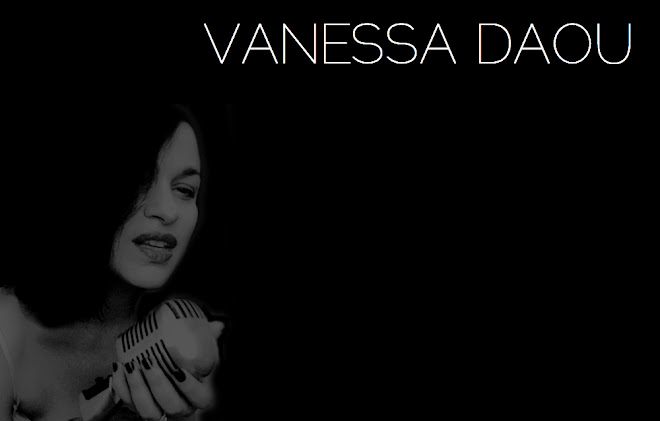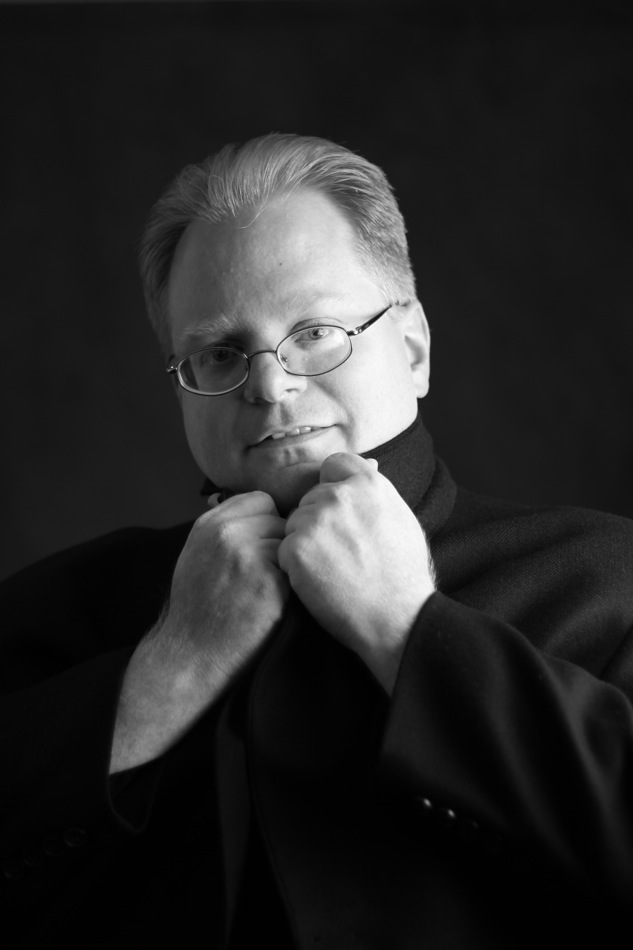"To burn always with this hard, gem-like flame, to maintain this ecstasy, is success in life." Walter Pater, from 'Conclusion'
 | ||
| Iké Udé |
Silhouetted against his 4 Self-Portraits at
"The Global Africa Project" at the Museum of Arts & Design
"Image is everything," so the saying goes; for the Photographer, however, it is the image that is everything. As a visual document, the photograph is not only the visual legacy we inherit from the past, it is what we are left with when we have exhausted all words.
But history doesn't always get it right, as we learned, for instance, from Neil Armstrong's lunar omission of the word 'a' in his "One small step for [a] man..." Proof that sometimes, when something so seemingly small is lost, there is not just a world, but an entire universe of meaning squandered. The loss of historical nuance and detail, if unnoticed, ultimately leads to impoverishment of spirit and mind, a withering of that 'gem-like flame' that Walter Pater writes of. This exuberance for life's details, past, present, and imagined is expressed reverently and exultingly in Iké Udé's Photographs.
The notion of 'History' is a convenient construct, albeit flawed; there is only our interpretation that remains, and even our understanding of that is prone to be flawed, skewed and distorted through the convex lens of our biases and desires. We take what we want, we leave out what we want, we both pillage and mine History to suit our innate and innermost needs. A glimpse into the history of the word 'silhouette' highlights the fact that a word is not simply a reference to a thing, but a complex and mutable organism rooted in time and the imagination.
Everywhere, we take meaning with us: we adopt symbols, signs, and visual queues. How we present ourselves to the world is reflected in, first and foremost, like it or not, in that social construct, our personal attire: the clothes we choose to wear. How we dress represents not only our visual selves, but communicates something more subtle and profound: our linguistic selves. The fascinating history of the word 'dress':
"A dress is such a common article of modern attire that it is difficult to imagine that the word dress has not always referred to this garment. The earliest noun sense of dress, recorded in a work written before 1450, was "speech, talk."
Udé's self-portraits both reference and pillage the rarefied, arcane archives of our collective clothed history: they are at once a nod and a negation. His piece titled "Sartorial Anarchy" presupposes our familiarity of this history as much as it pirates, re-defines and conclusively usurps it.
How we 'dress' serves to communicate, obscure, clarify or confuse; it can be antagonistic, anachronistic, anarchic, or an offer of amends; our clothes can contradict or disguise our actions and intentions. The way we 'dress' reflects our dreams, our struggles and strategies, and how we, as humans, 'live in the layers'. What Udé is proposing in his work is as much Philosophy as it is Photography, and it speaks to each of us who seeks, ultimately, "to maintain this ecstasy".
How we 'dress' serves to communicate, obscure, clarify or confuse; it can be antagonistic, anachronistic, anarchic, or an offer of amends; our clothes can contradict or disguise our actions and intentions. The way we 'dress' reflects our dreams, our struggles and strategies, and how we, as humans, 'live in the layers'. What Udé is proposing in his work is as much Philosophy as it is Photography, and it speaks to each of us who seeks, ultimately, "to maintain this ecstasy".
Read more about the 'Global Africa Project':







